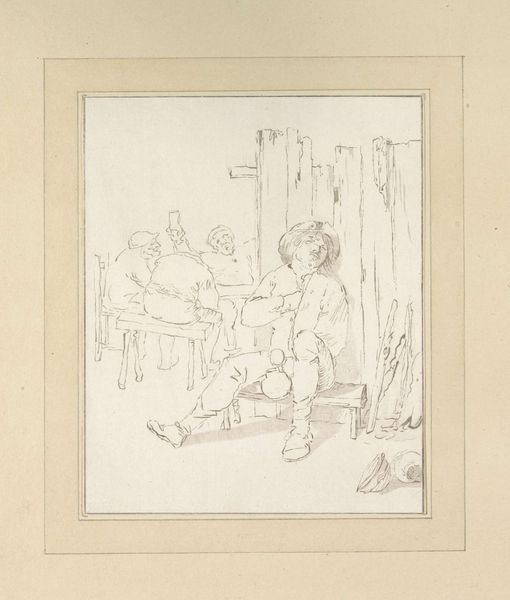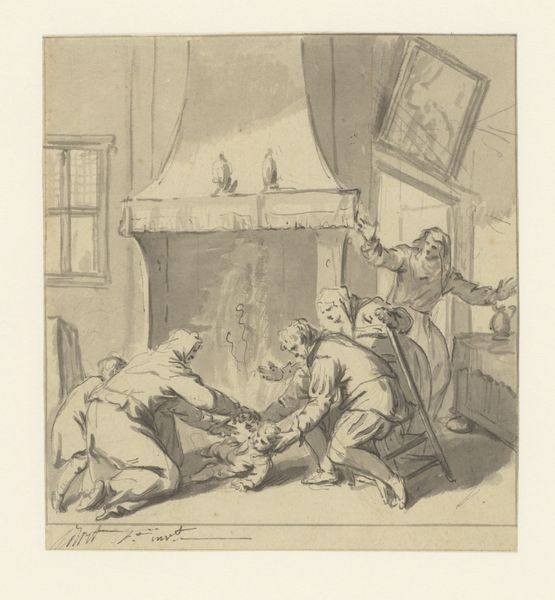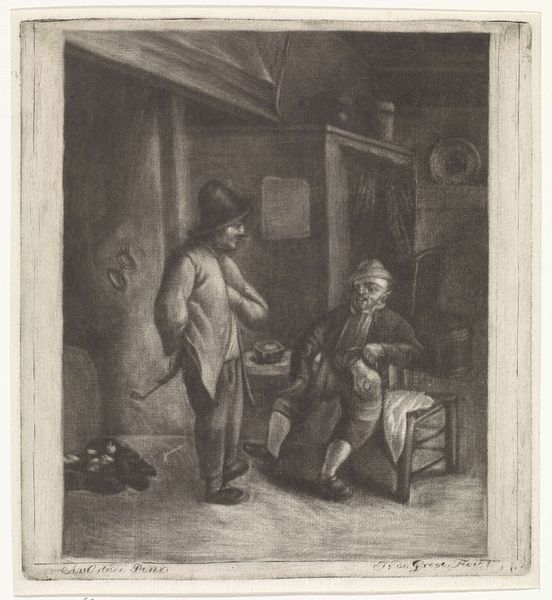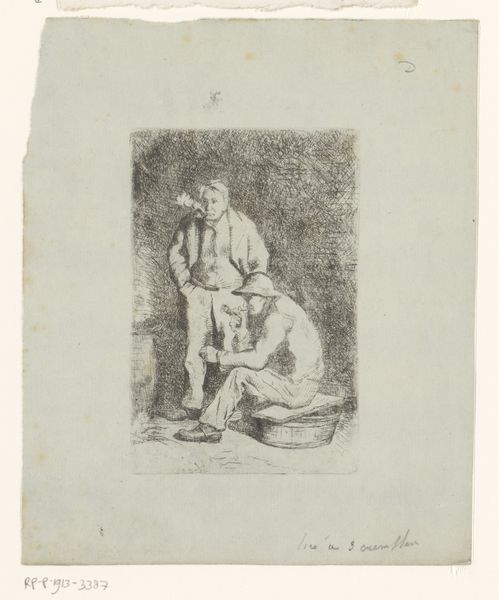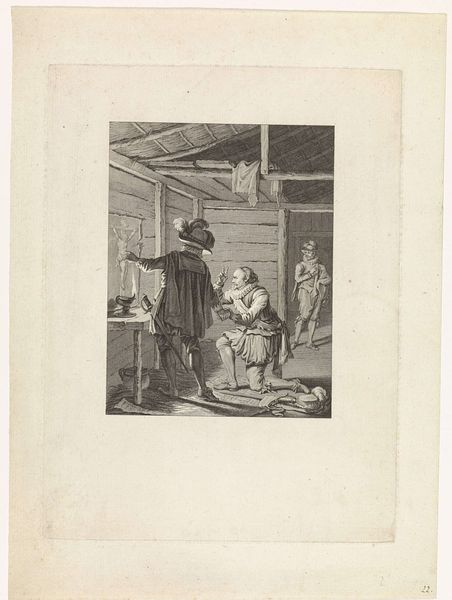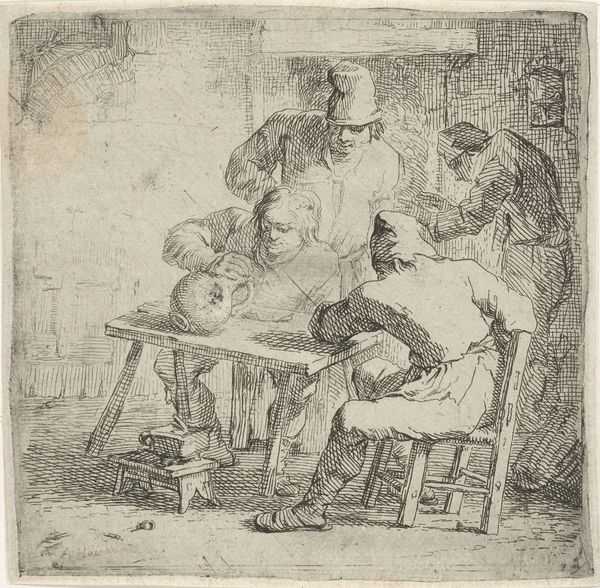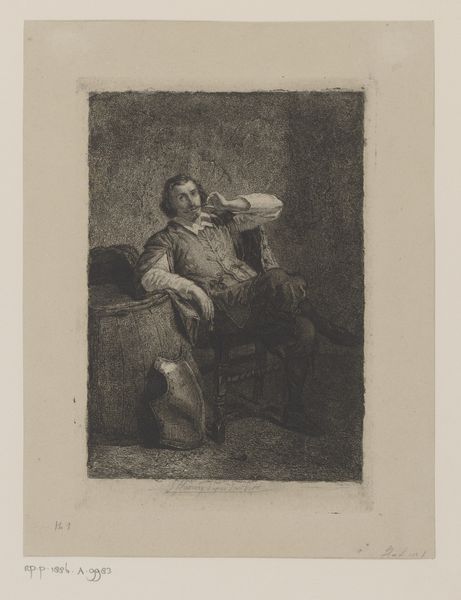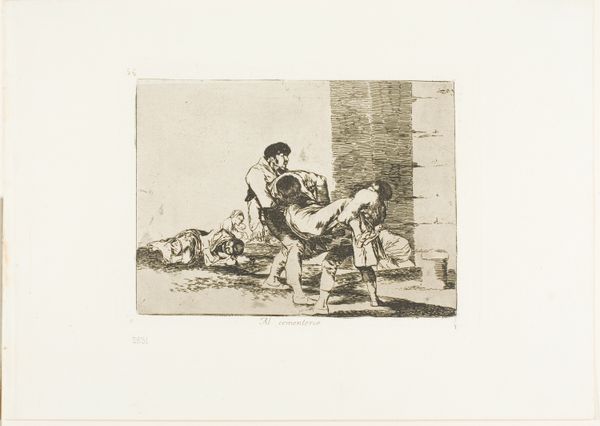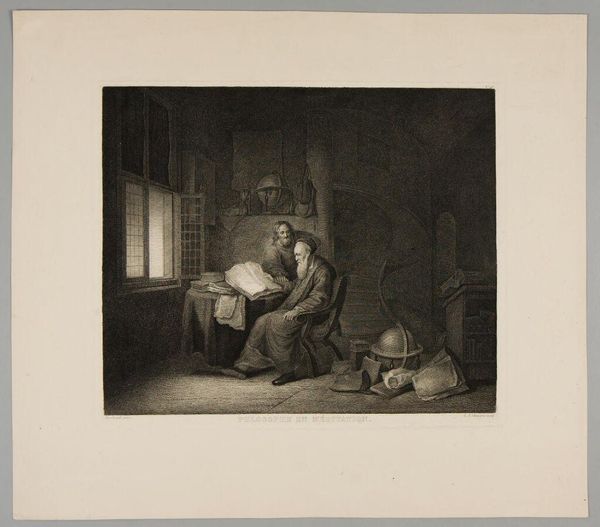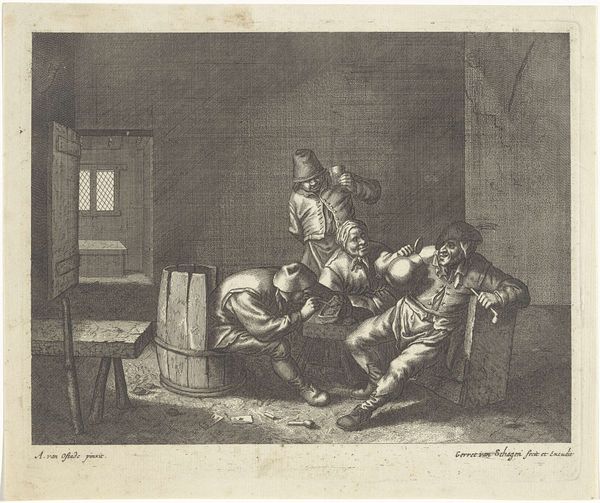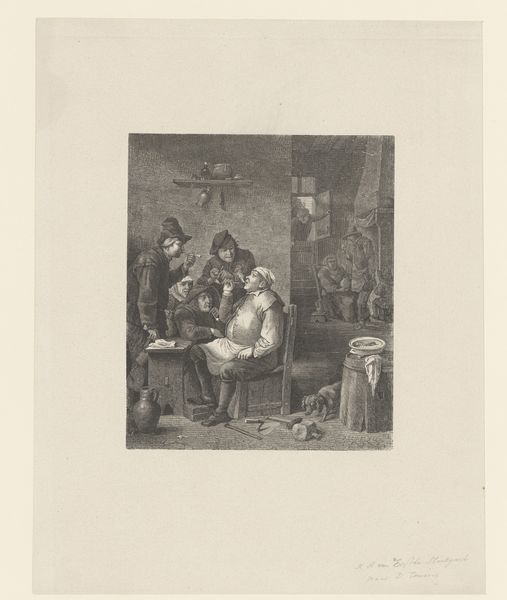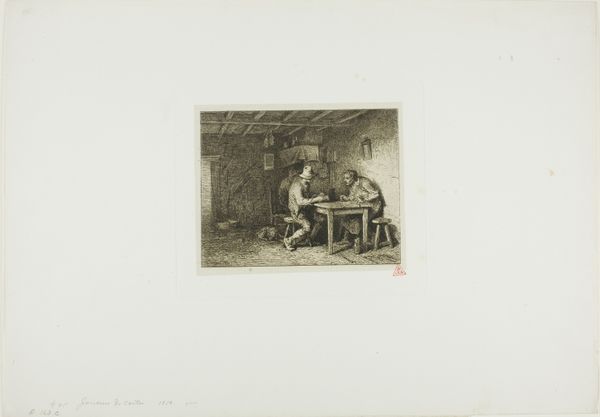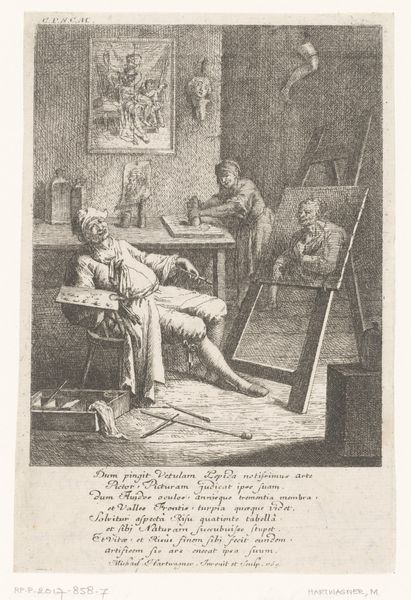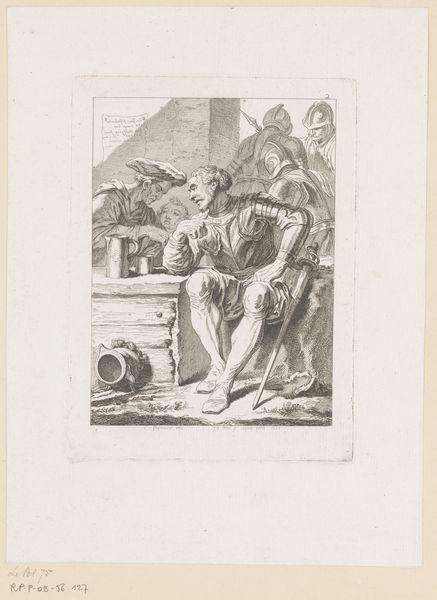
Dimensions: height 242 mm, width 206 mm
Copyright: Rijks Museum: Open Domain
Curator: Before us we have "Dronken boer in herberg", which translates to "Drunk farmer in Inn", by Bernhard Schreuder. It was created sometime between 1775 and 1828. Editor: My immediate impression is one of isolation. The main figure seems completely disconnected from the jovial scene playing out behind him. It speaks to the human condition and feeling alone, even among others. Curator: That feeling is heightened when one contextualizes the setting in light of changing social mores surrounding alcohol use during the period. Depictions of taverns had a didactic function. Public perception started to evolve towards concern with public health, labor capacity and the costs to society. Editor: Absolutely, it's a visual cautionary tale. His slumped posture, the almost aggressively simple wooden planks behind him; it's a stark contrast to the merriment in the background, isn't it? There's something powerful in the way Schreuder has chosen to depict this figure. The loose pencil strokes of what seem to be radishes discarded on the floor—details that feel loaded with symbolic weight. Curator: It is rendered in pencil on toned paper; typical of the period, yes? Its sketch-like quality adds to that immediacy. You sense that this is perhaps not a commissioned piece, but rather a study, pulled directly from observation. Schreuder captures not just a likeness, but a particular moment, a mood that echoes larger debates regarding acceptable public behavior. Editor: Precisely, and how that acceptable behavior is always framed by social hierarchies. Who is allowed to relax and enjoy, and who is publicly shamed and disciplined. This piece brings forward the concept of "the other" into a compelling composition of light and shadows, where every detail enhances that central question of social inequality. Curator: Well said. The image highlights tensions present during its creation regarding individual liberty versus societal norms and evolving conceptions of responsible citizenship. Editor: Looking at it today reminds us of the ongoing dialogues regarding addiction, class, and the ever-present gaze of societal judgment. It's a mirror reflecting our own biases. Curator: A reflection prompting continuous questioning and learning about social structures. Editor: Indeed, artwork that continues to stimulate discussion has done its job.
Comments
No comments
Be the first to comment and join the conversation on the ultimate creative platform.
